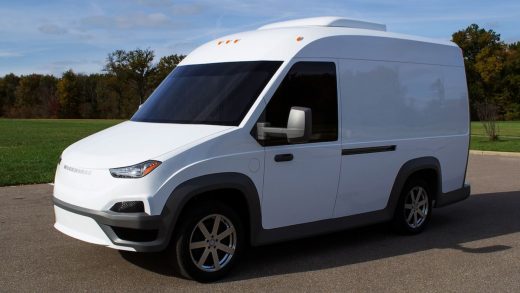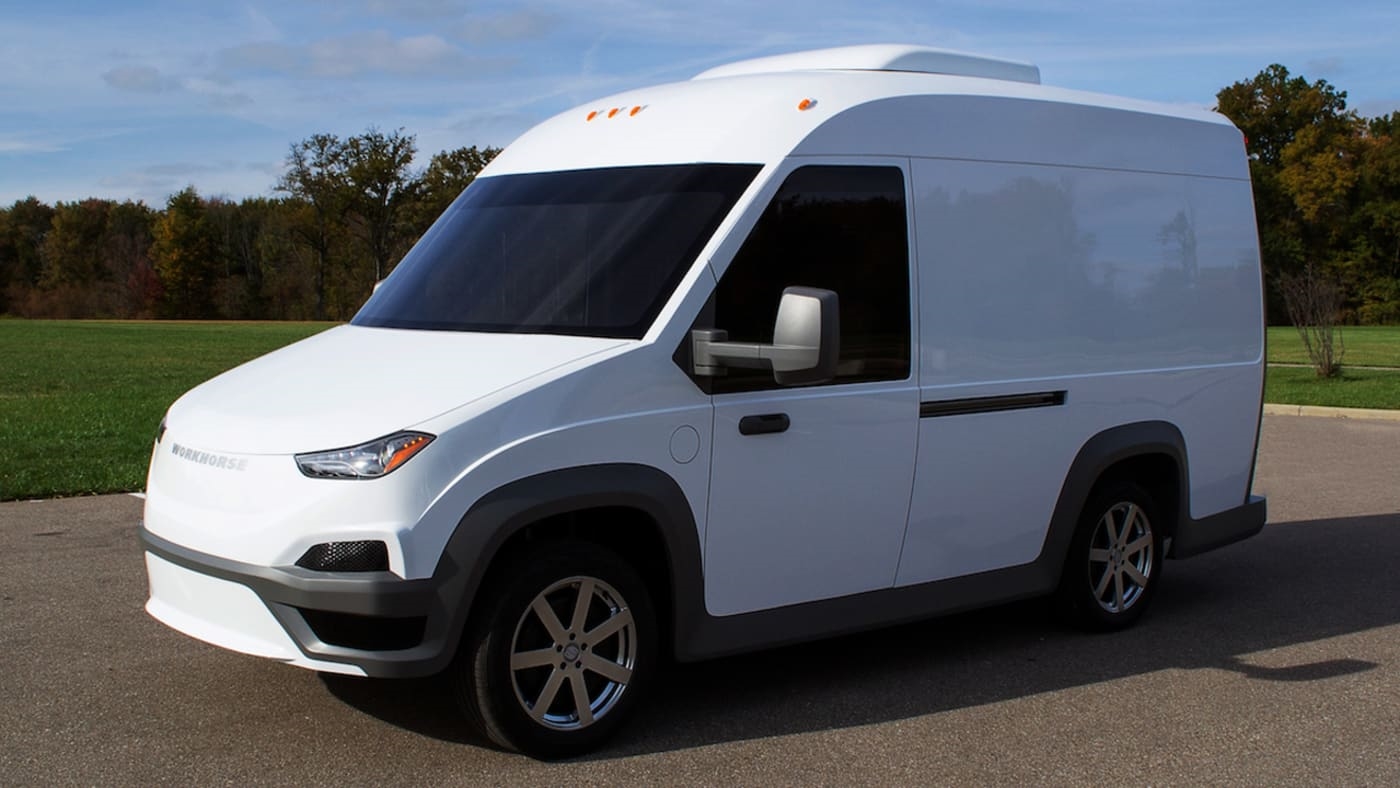They’re not sexy like Teslas, but electric delivery vans are coming to San Francisco
Workhorse Group, an Ohio-based equipment manufacturer, is delivering its first four N-Gen model all-electric vans to the Bay Area this week. The vehicles are part of a pilot program and could play a big role in keeping down smog and CO2 pollution.
They also save money, according to Workhorse. “We believe we’re coming in comparable to a diesel truck lease,” says CEO Steve Burns. “And then of course [there are] extreme fuel and maintenance savings.”
Vans cost less than a third as much to run on electricity as on petroleum, Burns reckons; and he promises lower maintenance bills. “Last mile, stop-and-go, the nature of that is very difficult on internal combustion engines and automatic transmissions,” he says.
So-called “sprinter” package delivery trucks like these might make 200 stops per day doing city deliveries, he says; but overall, the all-wheel drive vans will travel less than their 100-mile battery range each day.
Rural deliveries require more driving, but Workhorse has a plan to help with that. Multiple delivery drones can perch on the roof and fly packages autonomously to individual homes. UPS is currently testing the drones, and Burns hopes to get FAA approval to start deliveries this summer, but only for rural areas.
It’s is part of a trend: Chanje, a Los Angeles-based company backed by China’s FDG Electric Vehicles Limited, emerged from stealth in August 2017 to reveal an electric sprinter that’s now being offered by truck rental company Ryder. Mercedes Benz started taking orders in November for an electric sprinter van that should arrive in the second half of 2018, and it announced a more-advanced model for 2019.
Workhorse touts its American-made credentials as a differentiator–one that fits well with the current political mood. And Burns has his fingers crossed for an especially American deal: The company is one of six finalists (including makers of gas-powered vehicles) competing for a $6 billion contract to replace the U.S. Postal Service’s delivery fleet.
(33)



